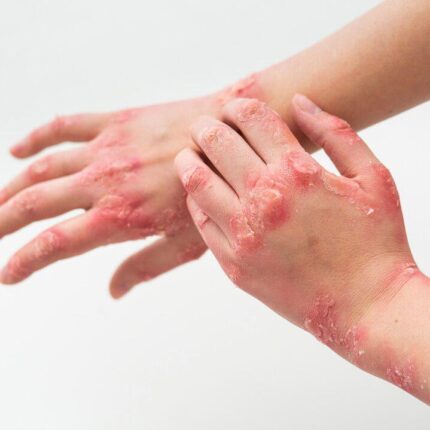A pigmentation disorder is a condition that affects the color of the skin, hair, or eyes due to anomalies in the production or distribution of melanin, the pigment responsible for coloring. These disorders can lead to uneven pigmentation, either making areas of the body lighter or darker than normal.
Pigmentation, which refers to the natural coloring of skin, hair, and eyes, can be influenced by a variety of factors. These causes can broadly be categorized into genetic, environmental, hormonal, medical, and pharmacological influences. Here’s a detailed breakdown:
Causes of Pigmentation:
1. Genetic Factors
Inheritance: Genetic makeup determines baseline melanin levels and distribution patterns.
*Conditions*: Disorders like albinism (where melanin production is minimal or absent) and familial cases of vitiligo (characterized by loss of skin pigment) are hereditary.
2. *Environmental Factors*:
Sun Exposure: UV radiation stimulates melanin production, leading to tanning or sunburn. Prolonged exposure can cause hyperpigmentation, such as age spots.
Pollutants and Chemicals: Exposure to certain chemicals can disrupt melanin production or distribution, causing pigmentation changes.
Injuries: Physical trauma, like cuts or burns, can lead to post-inflammatory hyperpigmentation.
3. Hormonal Changes:
Pregnancy: Hormonal fluctuations during pregnancy can trigger melasma, characterized by dark patches on the face.
Contraceptive Use: Hormonal contraceptives can also cause melasma or other pigmentation changes.
Menopause : Hormonal shifts during menopause can affect skin pigmentation.
4. *Medical Conditions*:
Autoimmune Diseases: Conditions like vitiligo result from the immune system attacking melanocytes, leading to loss of pigment.
Inflammatory Skin Conditions: Diseases like eczema or psoriasis can cause areas of hyperpigmentation or hypopigmentation.
– *Infections*: Some bacterial or fungal infections can alter skin pigmentation in the affected areas.
Drug Side Effects: Certain medications, such as chemotherapy drugs or antimalarials, can cause changes in skin pigmentation.
Topical Agents: Some creams or ointments used for skin treatment may lighten or darken the skin as a side effect.
*NewVedic Natural Pigmentation Treatment *
Newvedic Herbals produces a range of herbal formulations specifically designed to treat facial pigmentation. These products are crafted using natural herbs to ensure effective and gentle care.










Reviews
There are no reviews yet.